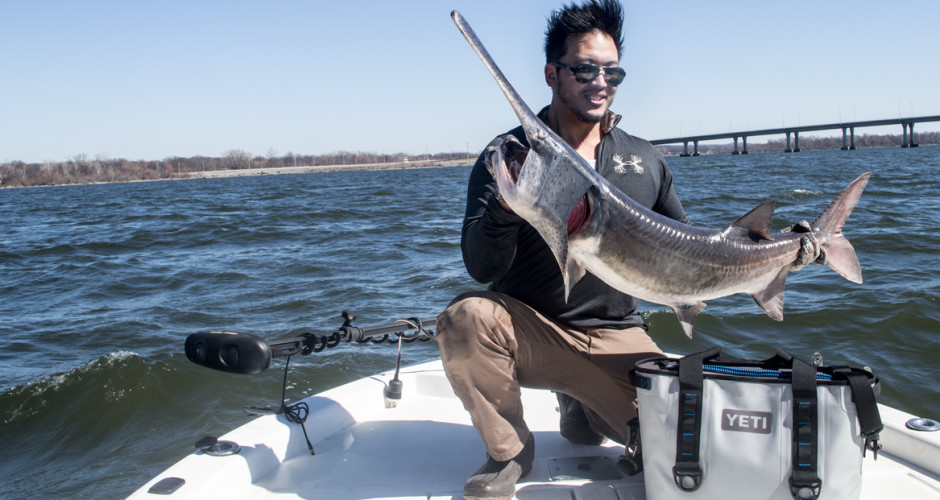CHASING DINOSAURS
By: Khoa Le
As children, we would have nightmares about monsters. As adults, we dream of catching them. David Frisbie and I recently had the pleasure of catching some monster paddlefish with captain Ray Austin and his son Bobby on Grand Lake in Northeastern Oklahoma.
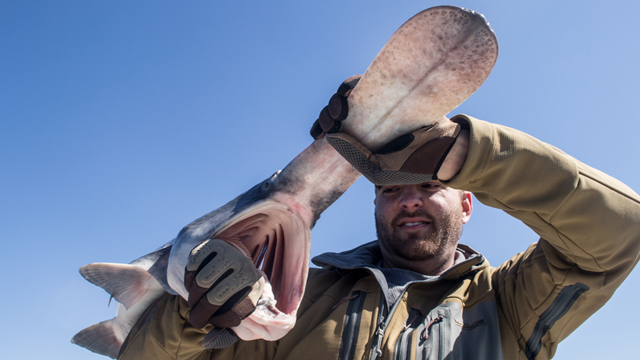
Often referred to as a “primitive fish,” these fascinating animals have evolved with few morphological changes since the earliest fossil records of the Late Cretaceous, nearly 75 million years ago. They swim through the water with their mouths open, scooping up microscopic zooplankton. Specialized cells on their bills sense weak electrical signals generated by the plankton.
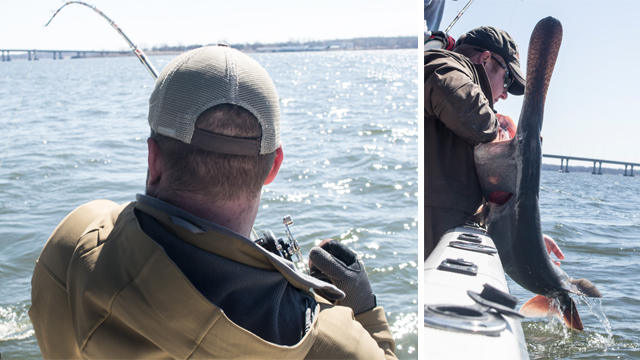
Because they don’t bite on bait, anglers must participate in snagging. But there’s no need to worry. Paddlefish are hardy and responsible catch-and-release practice does not cause permanent harm. Paddlefish anglers are required to use barbless hooks and are encouraged to return the fish to the water as quickly as possible. Anglers are also permitted to keep only two paddlefish a year and are encouraged to bring them to the Paddlefish Research Center where the fish is weighed, sexed, measured and aged.
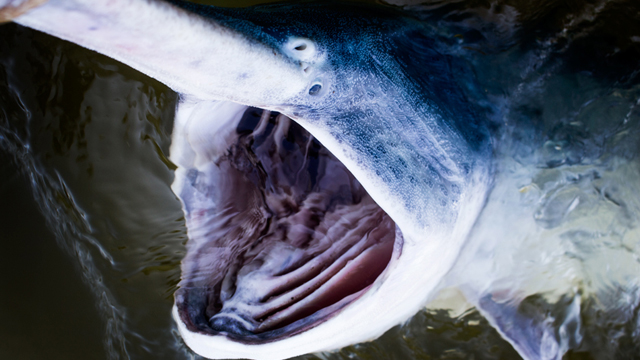
Paddlefish deposit growth rings in certain bones, like tree rings, and fish have been aged up to 27 years old in Oklahoma.
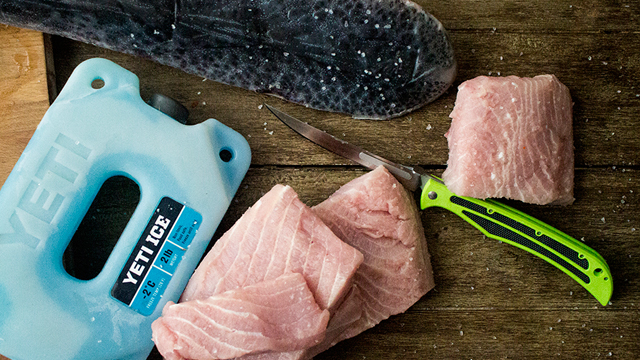
As an added bonus, the Paddlefish Research Center will process and pack the fish for anglers free of charge. They were even kind enough to meet us on the lake and offered to hand deliver our tasty filets that same day.
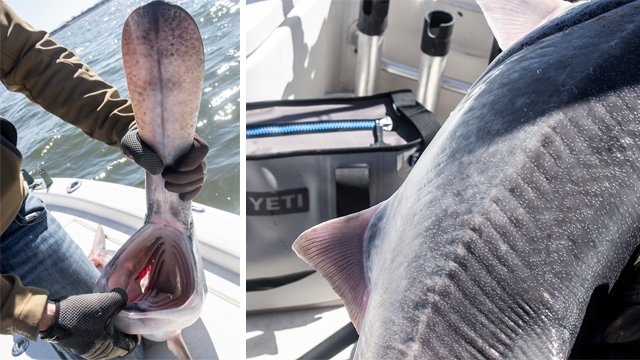
The PRC exists to help biologists manage Oklahoma populations of the species. Paddlefish are a big sensitive game species vulnerable to environmental conditions and over harvest. They also take a long time to mature (up to 10 years). Once mature they may not spawn every year. The OKDWC uses the information reported by anglers to help ensure a healthy population of paddlefish for years to come.
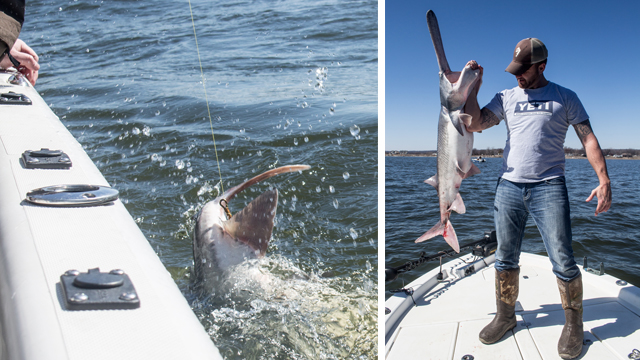
Beyond the bonus of free processing and packing of fish for anglers, the PRC also processes the often-discarded eggs and puts the millions they make off of selling Paddlefish caviar right back into Oklahoma fish and wildlife programs. These programs include quail management, hybrid striped bass production and black bear conservation among others. This benefits ALL hunters, anglers and outdoors enthusiasts, not just a few individuals, while ensuring that these magnificent living fossils continue to thrive for generations to come.
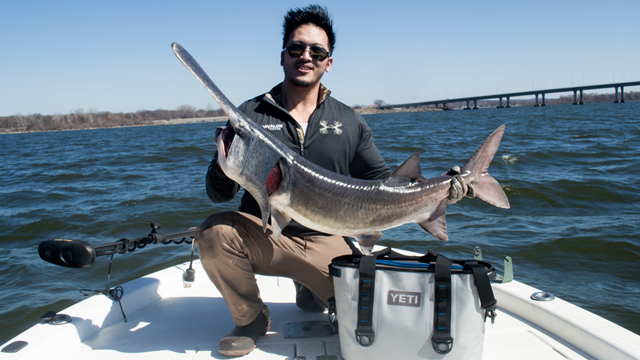
Tight Lines and Big Tines!
Khoa Le
Founder, Tight Lines and Big Tines!

